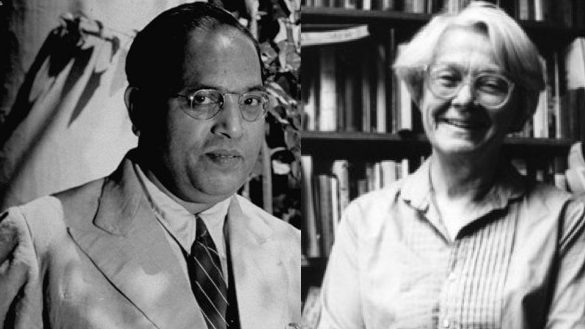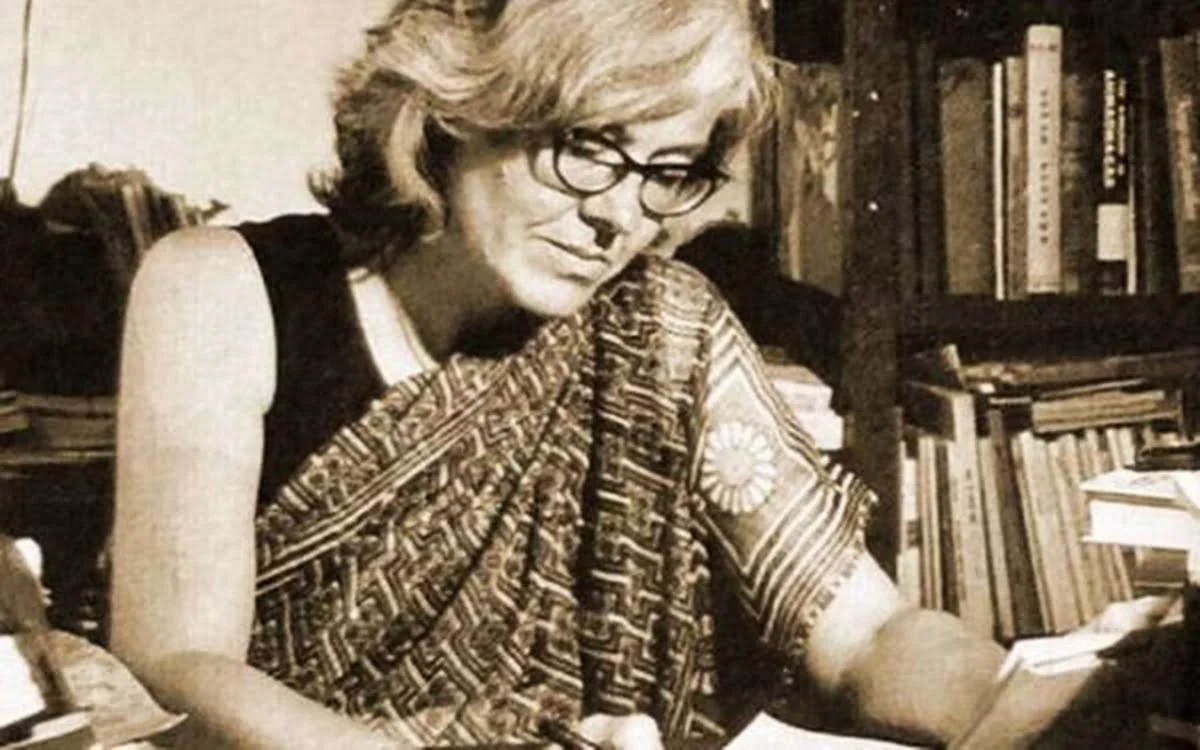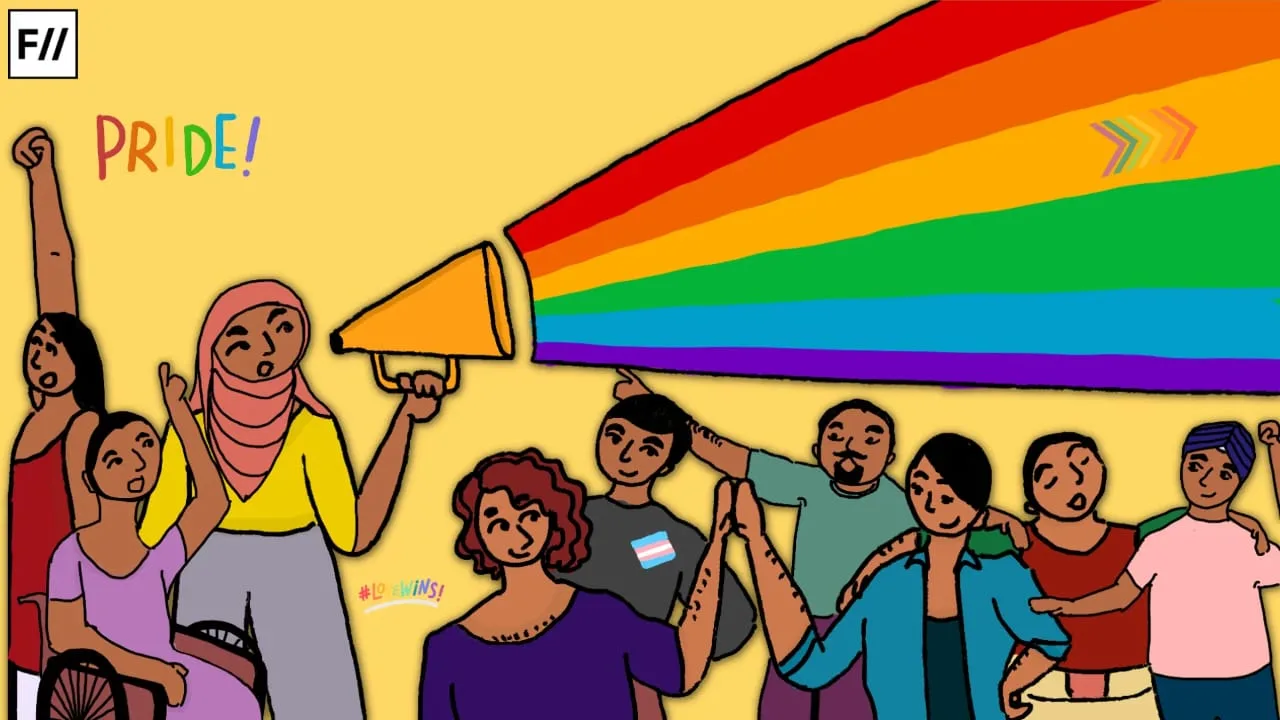The second imperative thing to history is documenting history. And Eleanor Zelliot did exactly that, and way more.
Early life
Born on October 7 1926, Eleanor Zelliot had inculcated a sense of righteousness and justice for all ever since her nascent years. From 1969 onwards, Eleanor taught history at Carleton College Northfield, MN. A Ph.D. holder from the University of Pennsylvania in South Asian Regional Studies, Eleanor Zelliot retired as the Laird Bell Professor of History, Emerita in 1997. Throughout her prolific academic career, Eleanor Zelliot whole-heartedly extended advice, attention, support, guidance, and humor, to her students, who not only learned from her, but also and more importantly so, learned how to utilize their education for the bigger cause. With her educational training and nuanced and empathetic writing, Eleanor transcended the boundaries of mere research because, for her, the marginalised communities were not only subjects.
The chronicling of history
Eleanor Zelliot first came to India in 1952 on a Quacker mission trip and published her doctoral thesis on Dr. Ambedkar and his movement. Bearing witness to the devastating circumstances in which Dalits (Scheduled Castes) live in India haunted her conscience and she decided to research it. Using a practical and compassionate method of participative research, Eleanor would interact and empathize with SCs and gradually, she herself became a part of the movement.
An erudite scholar, an eminent educator, and a thought-provoking chronicler, Eleanor Zelliot felt the cause and fought for it. Through an enlightening amalgamation of history, sociology, philosophy, and political science, Eleanor brought about a much-needed perspective on the oppressed and further ameliorated the knowledge about Dr. Ambedkar and traced the social context of the movement of Mahatma Jotirao Phule. Her teaching also encouraged Gail Omvedt, who took the documentation as well as the resistance further. Eleanor researched extensively on the history of South Asia. Her specializations were the history of India, Southeast Asia, women of Aisa, the Scheduled Castes, Vietnam, and the social movements all across the world. Furthermore, Eleanor also co-founded the interdisciplinary program at Carleton in South Asian Studies.

Seminal writings
A vivacious and humorous person, Eleanor was brilliant in her domain and selfless in her being. Her first book, Ambedkar’s World: The Making of Babasaheb and the Dalit Movement, is a seminal text in documenting the tribulations and achievements of the oppressed sections. Her later books spanning from The Experience of Hinduism: Essays on Religion in Maharashtra to From Untouchable to Dalit: Essays on the Ambedkar Movement, Ambedkar’s World: The Making of Babasaheb and the Dalit Movement and Untouchable Saints: An Indian Phenomenon, manifest the reality of the caste-ridden society of India. The book An Anthology of Dalit Literature, which she had edited with Mulk Raj Anand, encapsulates the vast journey that the writings of the marginalised have had to take and the numerous struggles that they had to face to write, as well as, to be heard and read. Compounded by the fact that Eleanor wrote over eighty articles and a myriad of reviews, her contributions to the cause stand unparalleled, and her concern for the emancipation of the oppressed, unfathomable.
Also read: Public Universities: The Site For An Emerging Ambedkarite Struggle
Expanse of work
From writing about Dr. Ambedkar in Western academia to encouraging academicians all across the world to study the oppressed, Eleanor Zelliot diligently rallied for the political movements of the Dalits(Scheduled Castes). She studied in detail, the Bhakti saints and women saint-poets, and analyzed their works with respect to their efforts of expanding the cause. Eleanor Zelliot related these historical occurrences to contemporary times.
Further, Eleanor Zelliot worked on Marathi literature and in collaboration with prominent names like Gail Omvedt, Sukhadeo Thorat, AK Ramanujan, Jayant Karve, and Vimal Thorat, translated them. The translation helped Dalit poetry reach the masses, who comprehended the trauma inflicted on Dalits(Scheduled Castes) by the oppressed castes. Eleanor Zelliot also made people aware of the leadership of prominent leaders like Gopal Walangkar, Shivram Kamble, and Kisan Bansode who fought for the rights of the Mahar community before Dr. Ambedkar.
Through her pioneering research and lucid writing, Eleanor Zelliot took the works of Dr. Ambedkar to a global readership. Popular among students and adored by all, Eleanor Zelliot inspired generations of scholars and students to bring to light the history of South and Southeast Asia. With an intellectual legacy so enriched, Eleanor Zelliot has paved the way for the young and the old, to understand both the rudimentary as well as the nuanced.
Also read: A Tribute To Gail Omvedt: The Author Who Re-Envisaged ‘Begumpura’

At 89, after a life dedicated to the marginalized, Eleanor Zelliot passed away on June 6, 2016, at her home in Minnesota, US. However, her salient work continues to guide the present and coming generations to fight for social justice for all, to continue to read and comprehend the past undeterred, and to relate it to the sociopolitical context of the contemporary times. For the history of social and political movements need to be understood, for them to be carried forward with vigour and sincerity.
Featured image source: Forward Press
About the author(s)
Ankita Apurva was born with a pen and a sickle.






